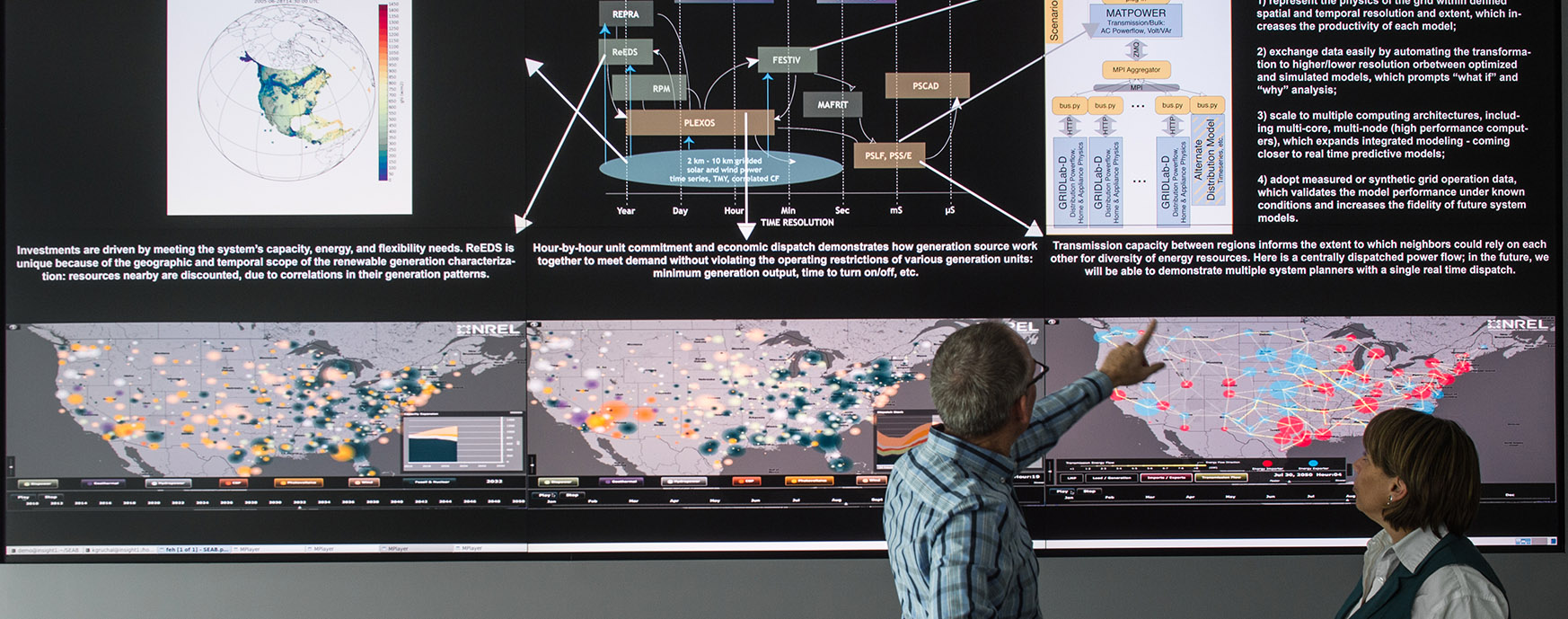Geospatial Data Science Modeling
NREL uses geospatial data science modeling to develop innovative models and tools for energy professionals, project developers, and consumers.

Geospatial modeling at NREL often produces the foundational information for other modeling efforts, including grid-planning modeling (ReEDS), grid operations modeling (PLEXOS), distributed generation market demand modeling (dGen), and modeling of specific systems.
Featured Model
NREL's open-source Renewable Energy Potential (reV) model is an example of geospatial modeling. The reV model enables detailed techno-economic assessment of renewable energy resources under a variety of regulatory, sociopolitical, and environmental factors. reV also serves as a pipeline for coupling energy models (e.g., ReEDS and PLEXOS) to ensure model scenarios are seeded with synchronous data. The reV model was developed for cross-platform use and can be scaled to run a small geographic extent on a laptop to all of North America on a high performance computer (HPC) or on the cloud.
Share
Last Updated March 26, 2025
